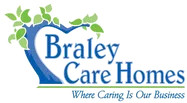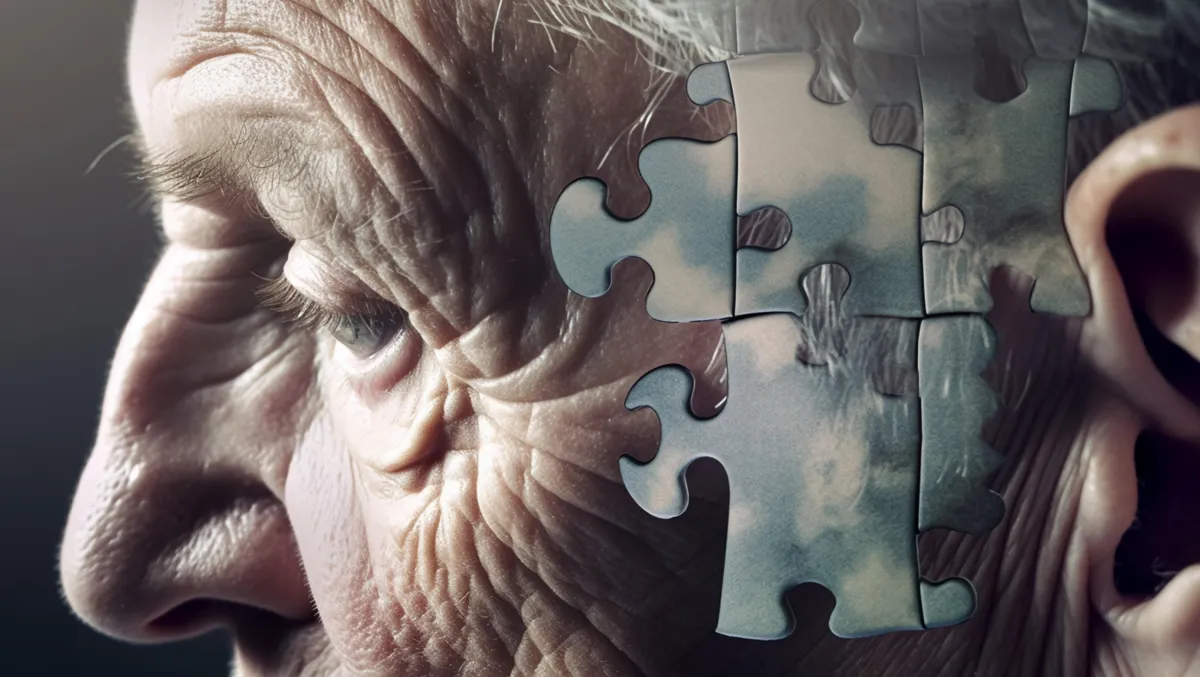When a Loved One Fades Away with The Ripple Effects of Alzheimer's on Family Relationships
Hurricane, United States - November 20, 2023 / Braley Care Homes Inc /
How Alzheimer's Disease Affects Families
Alzheimer's Disease, a relentless neurodegenerative condition, steals not only memories but reshapes lives, affecting millions globally. Characterized by progressive cognitive decline, it poses profound challenges to individuals and, significantly, their families. With prevalence soaring, Alzheimer's has become a societal concern, demanding attention due to its pervasive impact on healthcare systems and economies. Beyond statistics, it's crucial to recognize the human side—the emotional toll on families. Understanding Alzheimer's, its prevalence, and societal repercussions underscores the urgency to address its profound impact on families, advocating for support, awareness, and research to navigate the challenging journey ahead.
Understanding Alzheimer's Disease
Alzheimer's Disease is delving into the intricate workings of a condition that silently erodes memories and alters lives. This neurodegenerative disorder progresses relentlessly, affecting cognitive functions and behavioral patterns. It's a journey into the maze of forgetfulness, confusion, and emotional upheaval. Alzheimer's primarily targets seniors but can also affect younger individuals. As we navigate this landscape of memory loss, we must grasp the stages, symptoms, and impact on individuals and their families. By comprehending the intricacies of Alzheimer's, we empower ourselves to offer support, advocate for research, and foster a compassionate understanding of those living with this challenging condition.
Emotional Impact On Family Members
As the insidious grip of Alzheimer's Disease tightens, its emotional toll on family members becomes an intricate tapestry of heartbreak and resilience. This journey through the labyrinth of emotions is marked by profound sorrow, yet it is also a testament to the strength that families can muster in the face of adversity.
Shock and Denial: Witnessing a loved one succumb to Alzheimer's often initiates a tumultuous journey. Initially, shock and denial may serve as emotional buffers, shielding families from the total weight of the diagnosis. The mind grapples to reconcile the vibrant memories with the stark reality of cognitive decline.
Grieving the Loss: Alzheimer's prompts an ongoing process of grief. Families find themselves mourning the loss of the person they once knew — a process that occurs not in one fell swoop but in fragments as the disease advances. Each forgotten name or distant gaze becomes a poignant reminder of what once was.
Coping with the Emotional Rollercoaster: The emotional rollercoaster that accompanies Alzheimer's is as unpredictable as the Disease itself. Families navigate the highs of small victories, such as a fleeting moment of recognition, only to plunge into the lows of profound confusion and agitation. This constant flux requires resilience and adaptability.
Family Dynamics and Strain: The evolving roles within a family can strain relationships. The primary caregiver may be thrust into a role they never anticipated, altering the family dynamic. Siblings may grapple with different perspectives on care, leading to tensions that compound the emotional burden.
Financial and Logistical Challenges: Beyond the emotional realm, families also contend with the practical challenges of caring for a loved one with Alzheimer's. Financial strain, logistical hurdles, and the demands of caregiving intensify the emotional strain, creating a multifaceted burden.
This blog series explores the emotional impact of Alzheimer's disease, emphasizing the need for families to cope, support each other, and seek external resources. It also discusses coping mechanisms, communication strategies, and the importance of self-care in the context of Alzheimer's.
Balancing Caregiving And Self-Care In The World Of Alzheimer
Caring for a loved one with Alzheimer's is a noble but demanding task that often leaves family caregivers navigating a delicate balancing act. While providing unwavering support, it becomes paramount to prioritize self-care.
Importance of Self-Care for Family Caregivers
The relentless demands of caregiving underscore the critical need for caregivers to carve out moments for themselves. Acknowledging that self-care isn't selfish, but a crucial component of sustainable caregiving can be transformative. From taking short breaks to engaging in hobbies, self-care empowers caregivers to recharge, enhancing their ability to provide quality care.
Seeking Support from Extended Family, Friends, and Support Groups
No one should walk this challenging journey alone. Extended family and friends can be pivotal in offering primary caregivers much-needed respite. Building a robust support network creates a shared responsibility, alleviating the burden on one individual. Additionally, participating in support groups allows caregivers to connect with others facing similar challenges, fostering a sense of community and understanding.
Addressing the Guilt and Stress of Caregiving Responsibilities
Guilt often creeps into the minds of caregivers, fueled by the perception that time spent on personal needs is time taken away from their loved ones. It's crucial to recognize that self-care is not a luxury but a necessity. By addressing and mitigating feelings of guilt, caregivers can adopt a healthier mindset, ultimately improving their well-being. Stress management techniques, such as mindfulness or meditation, can further aid in navigating the emotional toll of caregiving.
In the complex landscape of Alzheimer's caregiving, striking a balance between meeting the needs of a loved one and prioritizing personal well-being is paramount. Families can navigate this journey with resilience and compassion by emphasizing the importance of self-care, seeking support from the community, and addressing the emotional challenges inherent in caregiving. Remember, in caring for yourself, you are better equipped to care for others.
The Importance Of Early Detection And Intervention
Early detection and intervention in Alzheimer's Disease is crucial in healthcare, as it significantly impacts cognitive abilities and the lives of affected individuals and their families. This blog highlights the importance of early detection and implementing interventions to improve the lives of those affected.
Understanding the Early Signs: Alzheimer's, often insidious in its onset, manifests subtle signs initially. Recognizing these early indicators, such as memory loss, confusion, and changes in behavior, provides a window of opportunity for intervention.
Slowing the Progression: Early detection allows for the prompt initiation of treatments that may slow down the progression of the Disease. Medications and therapies tailored to the specific needs of the individual can help maintain cognitive function and improve quality of life.
Enhancing Quality of Life: Early intervention goes beyond medical treatments; it encompasses holistic care approaches. Psychosocial support, lifestyle modifications, and cognitive exercises can significantly enhance the overall well-being of those living with Alzheimer's.
Empowering Caregivers: For family members and caregivers, early detection provides the chance to understand the condition better and prepare for the challenges ahead. Education, emotional support, and skill development in caregiving contribute to a more resilient and informed support system.
Reducing Economic Burden: Timely detection improves the effectiveness of interventions and helps manage healthcare costs. Planning and implementing appropriate measures early on can alleviate financial strain on families.
Research and Clinical Trials: Early diagnosis opens doors to participation in clinical trials and research studies, contributing valuable data for advancements in Alzheimer's research. This collective effort is crucial in the quest for more effective treatments and, ultimately, a cure.
Early detection and intervention in Alzheimer's Disease is crucial for individuals, families, healthcare professionals, and society. By understanding early signs, implementing timely interventions, and fostering a supportive environment, we aim to slow disease progression and improve the quality of life for those affected. This commitment to resilience and compassion underscores the importance of every moment in the fight against Alzheimer's.

Community Resources And Support For Alzheimer's Families
In the daunting journey of Alzheimer's Disease, finding solace and support within the community is paramount. Beyond the medical realm, community resources play a pivotal role in aiding families affected by Alzheimer's, offering a lifeline in the face of emotional and logistical challenges.
Local Organizations and Support Groups
Local Alzheimer's associations often host support groups, providing a safe space for caregivers and family members to share experiences, exchange advice, and forge invaluable connections. These groups foster a sense of community, reminding individuals they are not alone in their struggles.
Educational Programs and Workshops
Communities frequently organize educational programs and workshops to empower families with knowledge about Alzheimer's. From understanding the Disease's nuances to learning effective caregiving strategies, these initiatives equip families with the tools needed to navigate the complexities of Alzheimer's with resilience.
Respite Care Services
Recognizing the toll that caregiving can take on family members, some communities provide respite care services. These programs offer temporary relief for caregivers, allowing them to recharge while ensuring their loved ones receive proper care in a supportive environment.
Financial and Legal Assistance
Dealing with the financial and legal aspects of Alzheimer's care can be overwhelming. Community resources often include services that guide families through the intricacies of navigating insurance, legal planning, and accessing financial aid, alleviating some of the burdens associated with the Disease.
Collaborations with Healthcare Providers
Collaborations between community organizations and healthcare providers enhance the continuum of care for Alzheimer's families. These partnerships ensure a seamless flow of information, resources, and support, creating a comprehensive network that addresses the multifaceted needs of individuals living with Alzheimer's.
In the collective embrace of these community resources and support systems, families grappling with Alzheimer's discover strength, resilience, and a profound sense of community. As we continue to advocate for awareness and understanding, these local initiatives stand as beacons of hope, demonstrating the transformative power of compassion and shared experiences in the face of Alzheimer's Disease.
Conclusion
Alzheimer's Disease inflicts emotional turmoil on families, straining relationships and causing overwhelming stress. The relentless demands of caregiving, financial pressures, and the isolation families endure can feel insurmountable.

Contact Information:
Braley Care Homes Inc
6192 US-60
Hurricane, WV 25526
United States
Braley Care Homes Inc
https://www.braleycarehomesinc.com/

